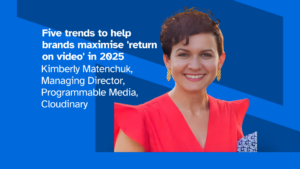Partner Content
By Otilia Otlacan, Head of Operations, AAX
It’s been apparent for some time that ad filterers—defined as ‘users who have blocked ads in the past month but discover brands or products through ads seen online and have clicked on an online ad in the past month’ — are not your average demographic. They’re eager to learn, and they spend a correspondingly large amount of time online.
And, once you look into the details, it’s astounding just how engaged ad filterers really are. This engagement is especially dramatic when you compare ad filterers to another segment of the browsing population: users that don’t use an ad blocker at all.
Ad filterers are eager readers of websites—in any given month, ad filterers in the USA are 29% more likely to visit a news website, 35% more likely to visit travel websites, and 100% more likely to visit business news websites, than those users who don’t use ad blockers.
Naturally, this website-loving behavior has larger implications. Ad filterers’ hunger for business and non-business news alike points to a sincere desire to keep up-to-date and on top of vital breaking news. And ad filterers’ tendency to visit travel websites suggests another fact about this demographic: ad filterers are wealthier than average, and have the disposable income necessary to jet away to Paris, Palm Beach, or Patagonia.
But there’s even more. Looking more closely at these insights, and an even more interesting picture of ad filterers starts to come into focus.
Thrill-seeking behavior
When you think about what drives the people who search out information on travel websites, whether they’re comparing beach bungalows or museum packages, you’ll quickly realize that there’s more driving that behavior than a simple desire to spend a surplus of cash.
There’s the dynamic of wanderlust to consider.
A recent piece by Mark Ellwood and Laura Dannen Redman explores the science hypothesizing that individuals who like to globe-hop do so out of a powerful combination of curiosity, restless-ness and a tendency to seek out thrills. Yes: the wish to travel to the far-flung reaches of Patagonia and the bistros of Paris alike are connected to the same chemicals that fire when you play roulette in Atlantic City, buzz your head on a dare, or book a skydiving experience.
A recipe for success
And what about that other aspect of ad filterers’ online hunger: their desire for all the news, all the time? Are there any psychological insights behind that?
As it turns out, there are
Current events aficionados—the people who wake up jonesing for the front page even before they’ve had coffee, who spend evenings glued to CNN and Fox, and who use social media as an excuse to follow Reuters and AP—are associated with a very particular standalone trait.
Success.
When reporter Jenna Goudreau asked a selection of the world’s most successful people, from Barack Obama to Jonah Peretti to Bill Gates, what they did every day without fail, one commonality stood out. All of these beacons of success read the news daily. As Goudreau writes, “successful people know they are what they read.” If you want to make the news, it turns out, you first have to know the news.
Ad filterers may not all be budding Warren Buffets, it’s true. But there’s ample reason to suspect that they’re not just your average user. They’re more inquisitive, more open to risk-taking, and their success is charted by an overall earning potential.
Interested in learning more about ad filterers? Check out our study, “Ad Filterers Online: Purchasing Habits and Media Consumption In The USA,” which was compiled after consulting the trove of data the GlobalWebIndex (GWI) keeps about internet behavior. It’s free, here.









